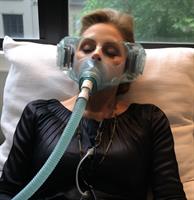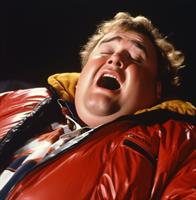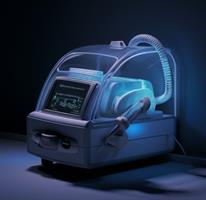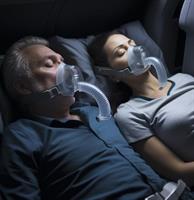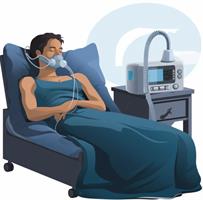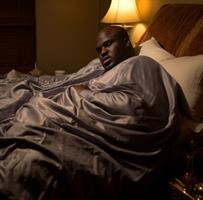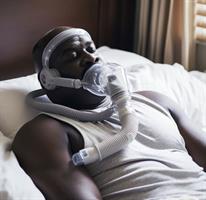Sleep apnea, a potentially life-threatening sleep disorder, has made headlines in recent years due to its impact on the lives of several well-known celebrities who died from sleep apnea.
From tragic deaths to powerful advocacy, this blog post will dive into the world of sleep apnea, exploring the fatal consequences, common misconceptions, and the crucial importance of identifying and treating this condition.
Join us as we take a closer look at the celebrities who died from sleep apnea, who have faced this disorder and learn valuable insights that could potentially save lives.
Key Takeaways
-
Celebrity deaths due to sleep apnea have highlighted the importance of early diagnosis and treatment.
-
Failing to address sleep apnea can lead to serious health complications and negatively impact quality of life.
-
Celebrities are advocating for proper treatment, inspiring others facing similar challenges.
Fatal Consequences: Celebrity Deaths Linked to Sleep Apnea
When it comes to sleep apnea, the consequences can be severe and even fatal. This reality becomes even more striking when we consider the lives and careers of several celebrities who have tragically lost their lives due to sleep apnea or its complications. These high-profile cases emphasize the importance of addressing this sleep disorder and seeking necessary treatment to prevent further loss of life.
Identifying and addressing sleep apnea in its early stages can mitigate serious health risks. This is where advanced sleep medicine services play a crucial role.
Carrie Fisher
Carrie Fisher, the iconic actress best known for her role as Princess Leia in the Star Wars franchise, passed away in 2016 at the age of 60. Her official cause of death was determined to be sleep apnea and other contributing factors.
Fisher’s death serves as a sobering reminder of the importance of seeking treatment for sleep apnea and other sleep-related disorders. Her premature demise not only sent shockwaves around the world but also highlighted the perilous repercussions of untreated sleep apnea.
The fact that someone as famous and seemingly healthy as Fisher could fall victim to this condition is a stark reminder that sleep apnea knows no boundaries and can affect anyone.
Jerry Garcia
Jerry Garcia, the renowned American musician and songwriter, and lead guitarist of the Grateful Dead, passed away in 1995 due to a heart attack. However, it is believed that his death was partly due to complications from sleep apnea.
The premature loss of Garcia underlines the need for acknowledging the gravity of sleep apnea and pursuing appropriate treatment to evade dire outcomes.
John Candy
John Candy, the beloved Canadian actor and comedian known for his roles in films such as Planes, Trains and Automobiles, Uncle Buck, and Home Alone, died of a heart attack in 1994 at the age of 43.
While the immediate cause of his death was a heart attack, it has been noted that Candy exhibited signs and symptoms of obstructive sleep apnea (OSA) before his death, such as loud snoring and daytime somnolence.
This sheds light on the significance of acknowledging and tackling symptoms of sleep apnea to avert potential calamities.
Amanda Peterson
Actress Amanda Peterson, best known for her role in the 80s movie “Can’t Buy Me Love”, passed away in 2015 at the age of 43. Her family has stated that her death was, at least partially, due to her sleep apnea.
Peterson’s unfortunate demise acts as yet another potent cautionary tale about the possible hazardous consequences of untreated sleep apnea, emphasizing the necessity for correct diagnosis and treatment.
The Dangers of Ignoring Sleep Apnea
Ignoring sleep apnea can lead to serious health complications and a negative impact on one’s quality of life. The dangers of untreated sleep apnea are not limited to high-profile celebrities; they pose a significant risk to anyone suffering from this condition.
Subsequent sections will delve into the possible health complications and the effect on quality of life linked with sleep apnea.
Health Complications
If left untreated, sleep apnea can cause significant strain on the body, potentially resulting in high blood pressure, heart disease, and other health issues.
High blood pressure can lead to stroke, heart attack, and other cardiovascular diseases, while heart disease can result in heart failure, arrhythmia, and other cardiac-related complications.
In addition to the cardiovascular risks, untreated sleep apnea is also associated with other health issues such as diabetes, obesity, and depression.
The potential health complications of untreated sleep apnea can be severe and life-threatening, emphasizing the importance of proper diagnosis and treatment.
Impact on Quality of Life
Sleep apnea can cause significant disruption to one’s sleep quality, resulting in fatigue, irritability, and difficulty concentrating. The manifestations of sleep apnea, such as loud snoring, gasping during sleep, and excessive daytime sleepiness, can have a profound impact on an individual’s daily life and overall well-being.
Securing treatment for sleep apnea is vital in halting the progression of the condition and improving one’s quality of life. By addressing sleep apnea and its associated symptoms, individuals can improve their sleep quality, reduce the risk of health complications, and experience a better overall quality of life.
Common Misconceptions About Sleep Apnea
Despite the growing awareness of sleep apnea and its potential dangers, several misconceptions about the condition still persist. These misconceptions can prevent individuals from seeking the necessary treatment and potentially put their health at risk.
This section will debunk several prevalent fallacies about sleep apnea.
Myth: Only Men Suffer from Sleep Apnea
One common misconception is that sleep apnea only affects men. While it is true that men are more likely to experience sleep apnea, the condition can affect people of any gender. Women may present with different and more subtle symptoms than men, which can lead to misdiagnosis or underdiagnosis of the condition.
It is estimated that approximately 1 woman is diagnosed with sleep apnea for every 2-3 men. It’s vital for both women and men to familiarize themselves with sleep apnea symptoms and seek medical advice should these signs manifest.
Myth: Sleep Apnea is Not Dangerous
Another common misconception is that sleep apnea is not dangerous. However, as previously discussed, sleep apnea can have serious implications for one’s health if not managed properly. Those who suffer from sleep apnea are at a heightened risk of:
-
High blood pressure
-
Stroke
-
Heart attack
-
Other health issues
Moreover, sleep apnea can negatively impact one’s quality of life, causing fatigue, difficulty concentrating, and an increased likelihood of accidents. Recognizing the possible perils of sleep apnea and procuring suitable treatment to decrease the risk of complications and enhance overall well-being is vital.
Identifying and Treating Sleep Apnea
Properly identifying and treating central sleep apnea is crucial to prevent complications and improve an individual’s quality of life.
This section will cover the approaches for diagnosing sleep apnea and the multitude of treatment options accessible to those afflicted with this condition.
Sleep Studies
Sleep studies, also known as polysomnography, play a vital role in sleep medicine, particularly in diagnosing sleep apnea by recording various functions during sleep, including:
-
Brain waves
-
Body movements
-
Eye movements
-
Heart rate
-
Oxygen levels
-
Breathing patterns
These studies can evaluate the severity of sleep apnea by measuring the number of times a person stops breathing during sleep.
If you or someone you care about might be experiencing sleep apnea, it’s crucial to seek advice from a healthcare professional to get a precise diagnosis and suitable treatment. A sleep study can provide valuable information about the severity of the condition and guide the development of a personalized treatment plan.
Treatment Options
There are several treatment options available for sleep apnea, including continuous positive airway pressure (CPAP) machines, lifestyle changes, and surgery. CPAP treatment is the most prevalent treatment for sleep apnea and involves wearing a mask that delivers constant air pressure to keep the airway open during sleep.
Lifestyle modifications can also help alleviate sleep apnea symptoms. These may include weight reduction, abstaining from alcohol, and sleeping in a lateral position. In more severe cases, surgery may be recommended to remove excess tissue from the throat or implant a device to maintain an open airway.
Sleep Apnea Mouthpieces
Sleep apnea mouthpieces, also known as oral appliance therapy, are an alternative treatment option for those who cannot tolerate CPAP machines. These medical devices are designed to be worn in the mouth during sleep to maintain an open airway. They are custom-made for each individual’s mouth and jaw structure and can be adjusted to provide the most effective and comfortable treatment.
Sleep apnea mouthpieces have several advantages over CPAP machines, such as improved sleep quality, diminished snoring, and improved overall health. They are also more comfortable and convenient for travel than a CPAP machine. This means it is more likely the person suffering from sleep apnea uses it, which is an important consideration.
However, potential risks associated with using a sleep apnea mouthpiece include jaw pain, tooth movement, and difficulty speaking, and the device may not be effective for all types of sleep apnea.
>> Check out SleepTight Mouthpiece - FDA cleared for moderate sleep apnea! <<
Raising Awareness: Celebrities Advocating for Sleep Apnea Treatment
Several celebrities have experienced sleep apnea firsthand and are using their platforms to raise awareness about the condition and advocate for proper treatment. By sharing their personal stories and experiences with sleep apnea, these celebrities are helping to break down common misconceptions and encourage others to seek the help they need.
Shaquille O'Neal
Basketball legend Shaquille O’Neal has been diagnosed with severe sleep apnea and has participated in a Harvard sleep study to better understand his condition. He has spoken publicly about his experience with sleep apnea and the importance of proper treatment.
Through sharing his personal battle with sleep apnea, Shaquille O’Neal is fostering awareness about the condition and motivating others to pursue requisite treatment. His advocacy demonstrates the importance of addressing sleep apnea and its potential dangers and serves as an inspiration for others facing the same challenges.
Amy Poehler
Actress and comedian Amy Poehler, best known for her work on Saturday Night Live and Parks and Recreation, has also been diagnosed with sleep apnea. She underwent a sleep study to determine the best course of treatment for her condition.
Poehler’s candid discourse about her struggle with sleep apnea is instrumental in spreading awareness about the condition and emphasizing the necessity of accurate diagnosis and treatment for enhancing overall health and quality of life.
Summary
In conclusion, sleep apnea is a serious and potentially life-threatening condition that affects people of all genders and walks of life, including celebrities.
By raising awareness about the dangers of sleep apnea and the importance of proper diagnosis and treatment, we can help prevent complications and improve the quality of life for those affected by this disorder.
Remember, sleep apnea does not discriminate, and it is crucial to seek help if you suspect that you or a loved one may be suffering from this condition.
Frequently Asked Questions
What famous person died of sleep apnea?
Carrie Fisher, the iconic actress best known for her portrayal of Princess Leia in Star Wars, tragically passed away due to sleep apnea and other factors.
Are there any celebrities with sleep apnea?
Yes, there are celebrities with sleep apnea, including Shaquille O'Neal and William Shatner.
How many people have actually died from sleep apnea?
Approximately 38,000 people in the United States die each year due to sleep apnea-related heart disease, with the National Commission on Sleep Disorders Research estimating that cardiovascular problems related to sleep apnea account for around 38,000 deaths annually.
Can you live a long life with sleep apnea?
Yes, you can live a long life with sleep apnea if you adhere to treatment and lifestyle changes recommended by your doctor. However, it is important to recognize the potential health risks associated with the condition, such as increased mortality rates.
What are the symptoms of sleep apnea?
Sleep apnea is often characterized by loud snoring, gasping/choking during sleep, extreme daytime sleepiness, morning headaches and restless sleeping.
